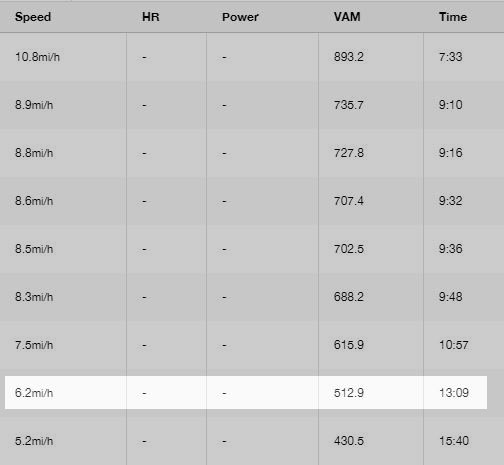
Getting out for a bike ride has been hard as a parent, but we got out with our toddler and took her on a trip up Old Tunnel Road the other day. I was curious how different climbing would be with all of the extra weight, so I flipped on Strava to see how my timing and speed compared.
I don’t have a great base for comparison, because I usually ride without Strava, and on the rides that I was using it (or a GPS), I was riding with a different bike. Also, we stopped twice because we ran into a friend (hi, Greg!) and had to avoid being attacked by wild turkeys. Seriously.
Here was my setup:
- Bianchi Axis “commuter bike”
- Thule Chariot Cougar (1-seater) ~25lb
- 1 baby, ~24 pounds
Either way, it was interesting to look at the differences in times:

The stretch in question is a 1.3 mile stretch, with 369 feet of climbing and a 5% grade. I was pushing pretty hard, and based on the times above, I think I could have ridden the stretch in maybe 9:45 with my commuter bike if I was not towing a child. So, I’d estimate a 30% increase in duration for a steady climb with the trailer.
How’s the math work out? The Chariot Cougar added about 50 pounds, so if I did my math right, that is:
50 / 2.2 * 9.8 * 369 * 12 / 39.37 / (13 * 60 + 9) = 31.8 watts of lost power
My total weight, plus bike is probably about 185lb, so 50lb is about a 27% increase, which matches pretty well with my estimate. That totally ignores differences in friction/drag for the trailer and other energy losses, of course. Maybe I just got lucky? It’ll be interesting to see how much slower things are on the flats.
How did our daughter do? She started to get a bit impatient during the climb, probably because it was taking a while. We took a break at the top and then descended. She seemed to enjoy the descent. I guess she enjoys going fast and the bumps? I turned back at one point, asked how she was doing, and I think she said “wheee”, so that’s a good sign.
